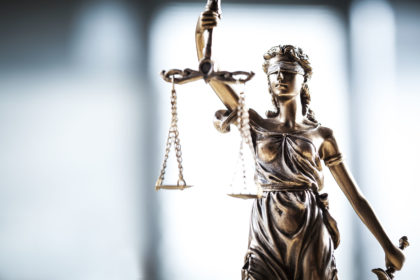 Following is the second in a series of posts about recent changes to California’s Rules of Professional Conduct. This one falls under the category of “Lawyer-Client Relationship,” focusing on “duties to former clients.”
Following is the second in a series of posts about recent changes to California’s Rules of Professional Conduct. This one falls under the category of “Lawyer-Client Relationship,” focusing on “duties to former clients.”
The Rule of Professional Conduct, as revised, is as follows:
Rule 1.9 Duties to Former Clients
(a) A lawyer who has formerly represented a client in a matter shall not thereafter represent another person in the same or a substantially related matter in which that person’s interests are materially adverse to the interests of the former client unless the former client gives informed written consent.
(b) A lawyer shall not knowingly represent a person in the same or a substantially related matter in which a firm with which the lawyer formerly was associated had previously represented a client.
(1) whose interests are materially adverse to that person; and
(2) about whom the lawyer had acquired information protected by Business and Professions Code section 6068, subdivision (e) and rules 1.6 and 1.9(c) that is material to the matter; unless the former client gives informed written consent.
(c) A lawyer who has formerly represented a client in a matter or whose present or former firm has formerly represented a client in a matter shall not thereafter:
(1) use information protected by Business and Professions Code section 6068, subdivision (e) and rule 1.6 acquired by virtue of the representation of the former client to the disadvantage of the former client except as these rules or the State Bar Act would permit with respect to a current client, or when the information has become generally known; or
(2) reveal information protected by Business and Professions Code section 6068, subdivision (e) and rule 1.6 acquired by virtue of the representation of the former client except as these rules or the State Bar Act permit with respect to a current client.
The revised Rules of Professional Conduct (RPC) that went into effect November 1, 2018, provide far more details on the topic of “duties to former clients” than did the old version. Rule No. 3-310(E) in the CBA’s previous version of RPC explained the restrictions involved with representing clients who could be adversely affected by knowledge gained by the attorney through previous legal representation of a different client. It also referred to needing informed written consent from the “client or former client,” whereas the new rule – RPC No. 1.9(a)-(c), as set forth above – only mentions duties owed to former clients.
The new rule also specifies that an attorney is strictly prohibited from divulging any information regarding a former client that is protected by Business & Professions Code section 6068(c). While the ABA’s RPC rule on this topic (Rule 1.9(a)-(c) is more detailed than the CBA’s previous rule, it is less detailed than the CBA’s new rule on duties to former clients, and contains no reference to any codes.
Client Benefits: This rule is an extremely important rule. It is intended to protect your confidential relationship, it requires you to consent to potentially adverse actions and protects your confidences. This rule is intended to protect a client against possible harm where a current or prior attorney tries to take a case adverse to you, or may disclose information that may be harmful.
The information provided herein is informational only and should not be construed as legal advice or as an agreement for representation. This is not an advertisement. If you have an issue or dispute with your attorney, or are seeking advice with respect to your obligations, you should consult with an experienced attorney. Parker Taylor Law Group is a full-service litigation and transactional law firm. Mr. Parker has represented clients in professional malfeasance disputes for over 22 years. If you would like to schedule an initial consultation with Mr. Parker or his team, you can reach them at 916/996-0400 or at contact@parlawgroup.com. (An email to the law firm requesting a consultation does not create an attorney-client relationship or any agreement for representation by the firm.)

